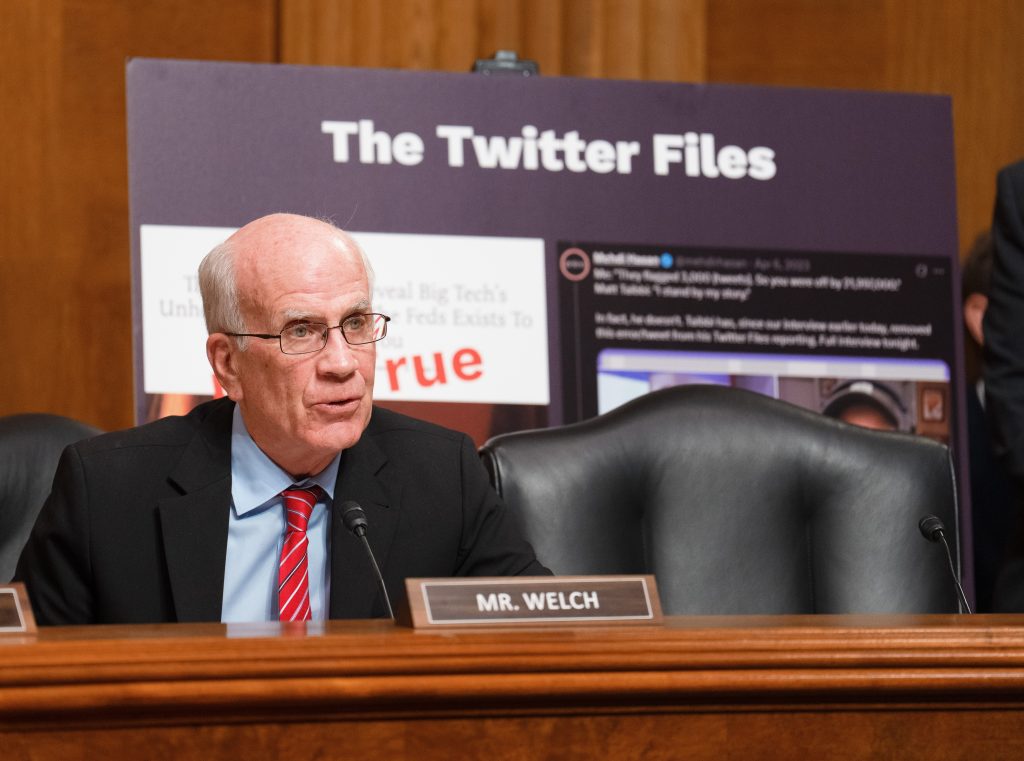Welch: “Although we agree that government should not infringe on free speech, I don’t believe that’s what has been happening here.”
WASHINGTON, D.C. — Today, U.S. Senator Peter Welch (D-Vt.), Ranking Member of the Judiciary Subcommittee on the Constitution, addressed far-right false claims of a vast censorship conspiracy during a Subcommittee hearing titled “The Censorship Industrial Complex.” Instead of focusing the first Subcommittee hearing on actual and proven instances of censorship by the Trump Administration against journalists, political adversaries, and critics, the Majority focused the first Subcommittee hearing on an alleged—and unproven—censorship enterprise against conservatives.
“On this question of the ‘censorship industrial complex,’ the basic allegation here, as I understand it, is that there is government-facilitated interference with free speech. And we’re going to hear from the witnesses on that. But the underlying premise of this, as I understand it, is the taxpayers are essentially footing the bill for this. My view is that facts don’t support that allegation,” said Senator Welch. “Although we agree that government should not infringe on free speech—I am with you on that and with all of my colleagues here—I don’t believe that’s what has been happening here.”
Watch the hearing below:

Read Senator Welch’s opening remarks as delivered here.
Witnesses for the Democratic Minority included Professor Mary Anne Franks, and Gabe Rottman. Dr. Franks is the Eugene L. and Barbara A. Bernard Professor in Intellectual Property, Technology, and Civil Rights Law at George Washington University School of Law, and an expert in the First Amendment and technology. Mr. Rottman is the Vice President of Policy at the Reporters Committee for Freedom of the Press. In this role he works at the intersection of press freedom and technology.
Witnesses for the Majority included Mollie Hemingway, senior editor for The Federalist, Jonathan Turley, conservative legal scholar, and Benjamin Weingarten, a Senior Contributor for The Federalist.
Read excerpts of Senator Welch’s questioning below:
Sen. Welch: Mr. Rottman, you’ve got an incredible job because the press is on the front lines, and Ms. Hemingway, you know that as well. What do you see as problematic for the press right now in the current administration, if anything?
Mr. Rottman: So, as I touched on both in the written testimony and just a few minutes ago, one of the key concepts in First Amendment jurisprudence is this notion that the government cannot use its vast authority to pick and choose sides in public debate. And the legal term for that is viewpoint discrimination. The various examples that I’ve pointed out in my testimony involve viewpoint discrimination. The AP case at the White House, right? The White House has said explicitly it is taking these actions because of the AP’s editorial choice to continue to use the term ‘Gulf of Mexico’—
Sen. Welch: Let me interrupt for just a second. The government can have a viewpoint, so obviously President Trump has a significantly different viewpoint than President Biden had. Is there any reservation on their ability to express what their viewpoint is?
Mr. Rottman: No, until the government uses its power to try and enforce that viewpoint on others.
###
